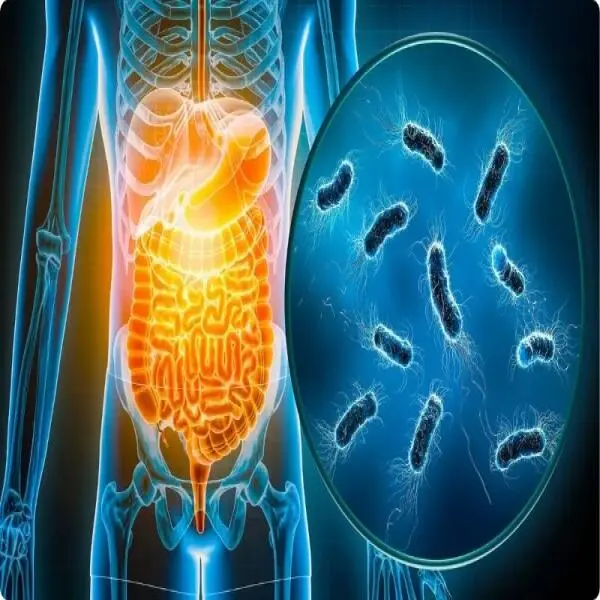
Phosphorus, also known by its ionic form phosphate (PO₄³⁻), plays an essential role in the health of our body. While the term "phosphorus" is often used interchangeably with "phosphate" in biochemical contexts, it refers to the vital mineral involved in a variety of biological functions. This article will provide a detailed overview of phosphorus, its biological significance, the tests associated with it, and its effects on health.
1. What is Phosphorus?
In terms of abundance, phosphorus ranks second in the human body, after calcium. As a macromineral, it is found in nearly every cell of the body. Phosphorus, in its ionic form phosphate, is crucial for several processes, including the formation of bones and teeth, energy production, and cellular communication. It is a key component in various biochemical compounds such as DNA, RNA, and ATP (adenosine triphosphate), which stores and transfers energy within cells.
Phosphorus enters the body primarily through food intake. It is easily absorbed in the intestines and is found in a variety of foods such as beans, peas, nuts, seeds, dairy products, eggs, meat, poultry, and fish. Approximately 70-80% of the body’s phosphorus is stored in bones and teeth, with smaller amounts found in muscles and nerve tissues. The rest of the phosphorus circulates in the blood, playing a role in energy storage and metabolism.

What is Phosphorus?
2. Biological Role of Phosphorus
Phosphorus is essential for numerous biological functions. These include:
- Energy Production: Phosphorus is a key component of ATP, the primary energy carrier in cells. This enables the body to produce energy needed for various cellular activities, including muscle contraction, nerve signaling, and metabolic reactions.
- Bone and Teeth Formation: Around 85% of the phosphorus in the body is found in bones and teeth, where it works alongside calcium to maintain their strength and structure.
- Cellular Function and DNA/RNA Synthesis: Phosphorus is integral to the creation and repair of DNA and RNA, which are necessary for cell division, protein synthesis, and overall growth.
- Regulation of pH Balance: Phosphorus also helps maintain the acid-base balance in the body, ensuring proper functioning of enzymes and cellular processes.
- Nerve and Muscle Function: Phosphorus plays a role in the transmission of nerve impulses and muscle contractions. It also helps to prevent muscle cramps and weakness, especially during physical activity.
- Hormonal Regulation: Phosphorus contributes to the regulation of certain hormones, including parathyroid hormone (PTH), which influences calcium metabolism.
3. Phosphorus Testing and Clinical Relevance
Phosphorus testing is commonly performed as part of a broader set of laboratory tests to assess a patient's overall health. The most common phosphorus tests include:
- Serum Phosphorus Test: This test measures the concentration of phosphate in the blood. It is used to diagnose conditions related to phosphorus imbalance, such as kidney disease or hyperparathyroidism.
- Urinary Phosphorus Test: This test is used to monitor phosphorus excretion in the urine, helping doctors assess kidney function.
Phosphorus levels can be affected by several factors, including the intake of phosphorus-rich foods, kidney function, and the levels of other important minerals like calcium and magnesium. Doctors often use phosphorus testing in combination with other tests for calcium, vitamin D, and PTH to evaluate the body's mineral balance and identify potential disorders.

Phosphorus Testing and Clinical Relevance
4. Phosphorus Imbalances: Causes and Symptoms
Phosphorus imbalances can result in both deficiency and excess, each causing a range of symptoms.
4.1. Phosphorus Deficiency (Hypophosphatemia)
Phosphorus deficiency can occur due to various conditions, including malnutrition, poor absorption, and kidney dysfunction. In many cases, mild phosphorus deficiency may not present noticeable symptoms. However, severe deficiency poses a risk of:
- Muscle Weakness: Phosphorus plays a vital role in muscle function, and a deficiency can lead to weakness, fatigue, and muscle cramps.
- Bone Pain: Phosphorus is a critical component of bone structure, and low levels can cause bone pain or conditions like osteomalacia (softening of the bones).
- Neurological Issues: Severe phosphorus deficiency can cause confusion, irritability, and in extreme cases, seizures.
Common causes of phosphorus deficiency include:
- Chronic Alcoholism: Alcohol inhibits the absorption of phosphorus.
- Diabetic Ketoacidosis: This condition can cause shifts in phosphorus levels in the body.
- Vitamin D Deficiency: Vitamin D plays a role in phosphorus absorption, and low levels can exacerbate deficiency.
4.2. Phosphorus Excess (Hyperphosphatemia)
Excess phosphorus in the blood can also cause various health issues, including:
- Calcification of Soft Tissues: High phosphorus levels can lead to the precipitation of calcium phosphate in soft tissues, causing damage to organs and increasing the risk of cardiovascular diseases.
- Bone Loss: Elevated phosphorus levels can interfere with calcium absorption, leading to conditions like osteoporosis or weakened bones.
- Kidney Damage: Excess phosphorus puts extra strain on the kidneys, increasing the risk of kidney failure, particularly in individuals with preexisting kidney disease.
Conditions that can lead to excess phosphorus levels include:
- Chronic Kidney Disease: Impaired kidney function leads to the inability to properly filter excess phosphorus from the bloodstream.
- Hyperparathyroidism: Overactivity of the parathyroid glands can result in increased phosphorus levels.
- Excessive Phosphorus Intake: Overconsumption of phosphate supplements or phosphorus-rich foods can lead to hyperphosphatemia.
5. Normal Ranges for Phosphorus Levels
Phosphorus levels can vary slightly depending on age and health status. The typical reference range for serum phosphorus is as follows:
- Infants (1-30 days): 3.9-7.7 mg/dL or 1.25-2.50 mmol/L
- Children (1-18 years): 2.7-5.1 mg/dL or 0.85-1.65 mmol/L
- Adults: 2.6-4.5 mg/dL or 0.84-1.45 mmol/L
It is important to note that phosphorus levels are usually measured in serum (blood), but may also be assessed through urine or other body fluids for specific medical conditions.
6. Phosphorus Intake Guidelines
Phosphorus is typically obtained from food sources, and most individuals can meet their daily phosphorus needs through a balanced diet. The Recommended Dietary Allowance for phosphorus changes with age:
- Infants (0-6 months): 100 mg
- Children (1-3 years): 460 mg
- Adults ( for 19 years and older): 700 mg
In most cases, a normal diet provides sufficient phosphorus, and supplementation is only necessary in cases of deficiency or certain medical conditions. It is essential to follow medical advice when taking phosphorus supplements, as excessive intake can lead to negative side effects.

Phosphorus Intake Guidelines
7. Conclusion
Phosphorus is a vital nutrient for maintaining health and supporting various bodily functions. From bone health to energy metabolism, its role cannot be overstated. Understanding its functions, the risks associated with imbalances, and the best ways to manage phosphorus intake can help individuals maintain optimal health. For those at risk of phosphorus imbalances, regular testing and proper dietary management are crucial for overall well-being.
Related Articles
The Essential Role of Beneficial Bacteria in Agriculture and Health
Beneficial bacteria are indispensable allies in maintaining a balanced ecosystem and promoting ...
What Does Proper Pond Maintenance Involve? Pond Maintenance Made Easy
Owning a pond can significantly enhance the beauty of your garden, providing a serene retreat for ...
How Do Retention Ponds Help Prevent Flooding?
A retention pond, often mistaken for a simple water feature, serves a critical function in urban and ...
What is Nitrogen? An In-Depth Guide to Nitrogen and Its Applications
Nitrogen, symbolized as N with an atomic number of 7, is a chemical element that plays a vital role ...
Understanding Synbiotics: Definition, Benefits, and Their Role in Health
In the pursuit of optimal health, maintaining a balanced gut microbiome is essential. Synbiotics, a ...
The Importance of Water Circulation: Why It Matters and How to Optimize It
Water circulation is a vital aspect of maintaining water quality and ensuring proper functioning in ...






